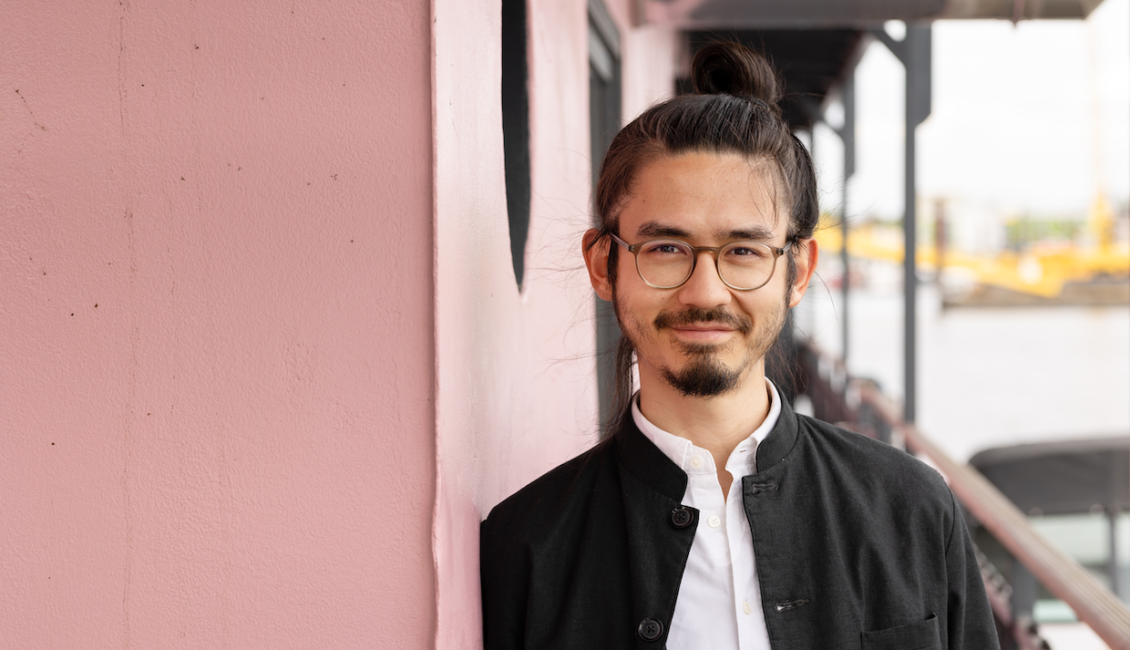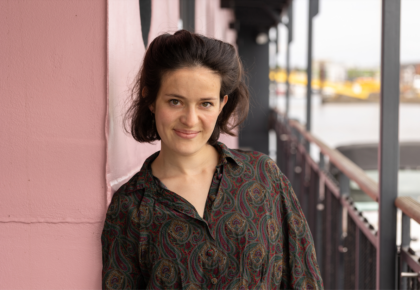
Photo: Sebastian Wagner
“Flawless concerts are a dead end”
Practice, practicingperfecting – wwho wants to play on big stageswant to like the pianist and concert designer TONI MING GEIGERmust work hard on yourself. With him came the Success: “Stunning”, writes the press about his appearances – which he but at some point itself too perfect weretoo smooth, zu boring. A conversation about making alive Failure, the loneliness at the piano and our news CreativePower station: the HIDALGO Collective
Interview:
Elisabeth Pilhofer
Toni, we got to know you as a meticulous tinkerer during our first collective workshop phase. How do you deal with mistakes?
I’m actually trying to do more of it.
Yes? Why?
In a way, this is a late reaction to my musical training. I was very classically socialized. In my mid-twenties, I was playing at a very good level, but I felt like I was at a dead end. I asked myself: What are you doing now that you can play concerts flawlessly?
Why did you see your skills as a dead end?
Because this music, which was considered perfect, didn’t seem alive to me. I now believe that the audience must be able to feel that music is being created live at performances, that music is being made in the moment. This is only possible if you allow yourself to make spontaneous decisions and don’t worry about avoiding mistakes.
How did you achieve this serenity?
I had to work hard to achieve that. I don’t consciously play wrong notes. But I embellish here and there, vary the rhythm and dynamics – as it makes sense to me at that moment for what I want to tell musically. That is liveliness, that makes it personal.
What are you looking for in the HIDALGO collective? Also liveliness?
Exactly, I want to work in an interdisciplinary way with other artists and thereby revitalize the classical repertoire. I totally agree with the HIDALGO approach, which is why it should be part of my artistic life.
Why is it necessary to revive old works? They are beautiful just the way they are, aren’t they?
Just leave the old as it is? Yes, that certainly has its appeal. Just not for me. I would then have to change profession or genre.
Why is that?
I would only feel like a reproducing element – and I can actually say that I can interpret all these old songs quite well. But I want to be able to feel like a living being from the year 2022.
So why don’t you play modern pop or some really avant-garde jazz?
Because this classical music appeals to a lot in me. Some of it was written centuries ago, but it is still intense. It speaks to me and to many other people. That’s also what my work as a concert designer, which I am, is all about. I want to offer new approaches to music that are as diverse as possible. Today we rely too often on standard performance practice, on etiquette.
Which label do you mean?
You leave your things at the checkroom and go to a predetermined place. You are not allowed to move to the music. You are not allowed to talk, eat or drink. You are not allowed to spontaneously applaud if you particularly liked something. Reverent silence must reign until the end of each work.
That seems to suit many people.
But only to a very specific group of people. Others do not feel welcome at classical concerts. They are afraid of doing something wrong. We have to break with these patterns if classical music is to have a future and not become a museum.
Which crowbar do you use?
Holistic design.
What does that mean in concrete terms?
We have to look at everything: Space, light and audience, the choice of pieces, the dramaturgical sequence, the clothes, the setting. We have to arrange all of this so that music can unfold its maximum effect.
We will be working together in the HIDALGO collective for the next three years. What are you most looking forward to?
The fact that I know that this is a space where I can let off steam artistically and find new inspiration. The HIDALGO collective is my artistic caffeine.
Do you usually work alone a lot?
Yes, as a pianist you practise a lot on your own. But I realized early on that this wasn’t good for me. That’s why I work in teams from time to time. The exchange with other people is what motivates me. I need that to move forward.


